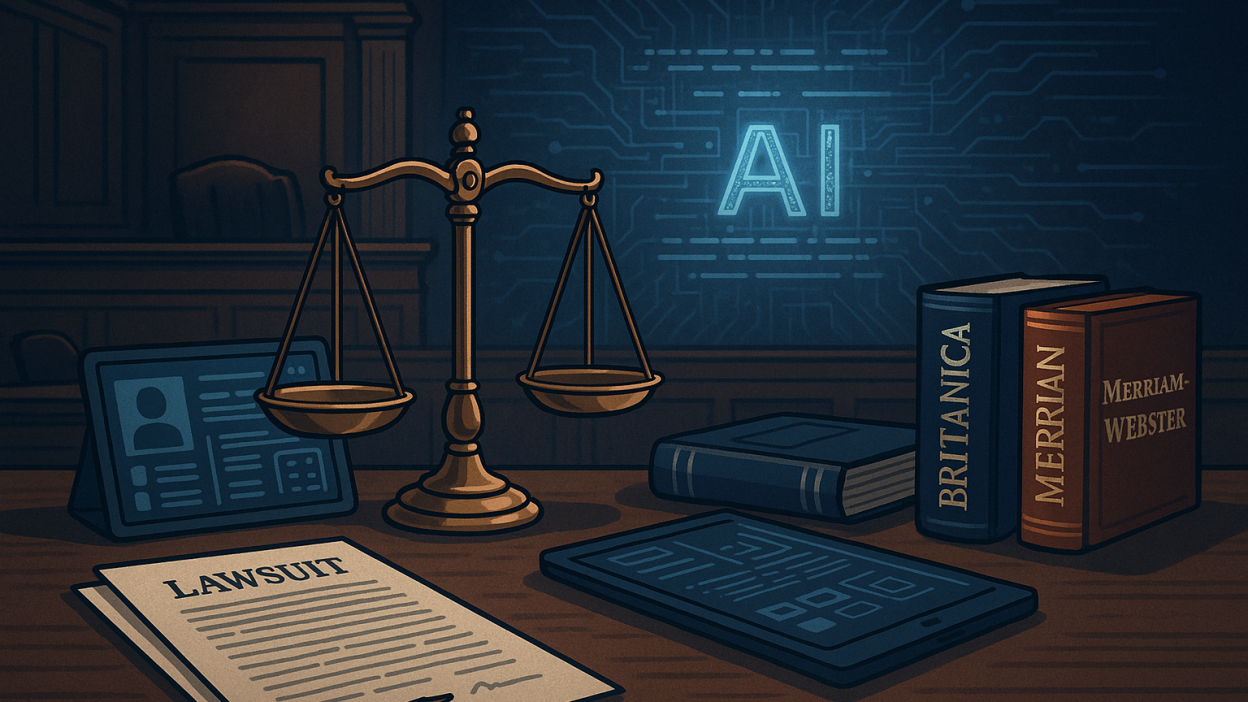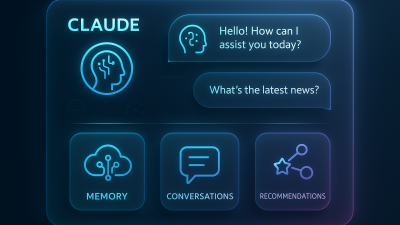A Landmark Legal Challenge in the AI Space
In a case that could have far-reaching implications for artificial intelligence and content creation, Encyclopedia Britannica and Merriam-Webster have jointly filed a lawsuit against Perplexity AI, accusing the company of copyright and trademark infringement. This lawsuit brings into focus the growing challenges associated with the use of intellectual property (IP) in AI-powered platforms, particularly those that rely on extensive datasets drawn from established content sources.
Both Britannica and Merriam-Webster are globally respected references for knowledge and language, with decades of editorial expertise and carefully curated information. The lawsuit alleges that Perplexity AI used their content without proper licensing or permission, violating not only copyright protections but also registered trademarks that distinguish their brands in the marketplace.
What Are Copyright and Trademark Violations?
Copyright infringement occurs when someone uses another party’s creative work — such as text, images, or audiovisual content — without authorization. Britannica’s curated articles and Merriam-Webster’s dictionary definitions are protected under copyright laws, meaning that replication or distribution without licensing agreements is legally prohibited.
Trademark violation, on the other hand, involves unauthorized use of a brand’s identity — such as logos, names, or distinct wording — that could mislead users or imply false association. Both Britannica and Merriam-Webster argue that Perplexity AI’s usage could confuse users into believing that their content or services are endorsed or affiliated with these brands.
Why This Lawsuit Matters
This case is more than just a dispute over content. It raises fundamental questions about how AI platforms collect, process, and present information. Many AI services depend on large datasets scraped from the internet, which often include copyrighted materials. As AI models evolve, questions around licensing, data ownership, and responsible content usage become more critical.
Key issues highlighted:
-
Content sourcing ethics — Should AI platforms be held accountable for using protected content?
-
Data transparency — Are users informed about where the AI’s information is coming from?
-
Impact on knowledge industries — How will AI tools affect traditional publishers and editors?
This lawsuit sets a precedent that may influence regulations and best practices for AI companies worldwide.
The Risks for AI Platforms
If courts rule in favor of Britannica and Merriam-Webster, AI platforms may be required to:
-
Acquire proper licenses before using third-party content
-
Clearly disclose sources to users
-
Avoid branding that confuses audiences about endorsements or partnerships
-
Implement stricter content filtering and data governance protocols
This could increase operational costs and slow the development of AI-driven services. However, it also offers an opportunity for innovation in creating ethically sourced, user-trust-driven AI platforms.
Implications for Users and Content Creators
For users, this case emphasizes the importance of being aware of where AI-generated content originates. While AI tools provide fast answers, reliance on unlicensed or ambiguous data can lead to misinformation or legal complications.
A Thoughtful Pause: If AI Isn’t Using Our Content, What Is It Using?
While Encyclopedia Britannica and Merriam-Webster’s lawsuit against Perplexity AI raises valid legal concerns, it also invites a broader reflection — one that’s both ironic and somewhat humorous.
After all, in the vast landscape of artificial intelligence, isn’t nearly every platform tapping into publicly available knowledge, user-generated content, or datasets scraped from countless sources without explicit permission? If that’s the case, one could playfully ask: Are we to believe that only Perplexity AI is guilty, while the rest of the industry operates in a vacuum of original content?
AI systems, by design, sift through oceans of data, indexing, summarizing, and presenting information in new formats. Many tools aggregate content, reorganize it, and offer insights without direct licensing agreements. In this context, Perplexity AI may be seen less as a rogue actor and more as a mirror reflecting a systemic challenge — one where content creators, platforms, and legal frameworks are grappling with the evolving definitions of ownership, access, and responsibility.
Of course, this observation isn’t to diminish the seriousness of copyright or trademark laws — they protect the creative and intellectual labor that enriches our world. But perhaps this lawsuit also serves as a reminder that the rise of AI has outpaced many traditional content policies. Should responsibility fall only on one company, or is it time for industries, regulators, and creators to rethink how knowledge is shared, protected, and used in the age of algorithms?
Let’s read this case not only as a courtroom battle but as a broader conversation — one that’s as much about the future of information as it is about who owns the past.
For content creators and publishers, the lawsuit reinforces the value of their intellectual property and editorial labor. It highlights the need for partnerships, licensing models, and fair compensation in the digital knowledge economy.
FAQs
Why are Britannica and Merriam-Webster suing Perplexity AI?
Both organizations claim that Perplexity AI used their copyrighted content and trademarks without permission, violating laws that protect original content and brand identity.
What is copyright infringement in this context?
Copyright infringement occurs when a platform reproduces articles or dictionary definitions from Britannica and Merriam-Webster without acquiring proper rights or licenses.
What is a trademark violation?
Trademark violation happens when a platform uses a brand’s name, logo, or other identifying marks in a way that could mislead users or create confusion about the source of content.
Is this lawsuit affecting users worldwide?
Yes. As AI tools are used globally — from the U.S. and Europe to India and Asia — the outcome of this case could influence how platforms operate in different regions, especially where copyright and trademark laws are strictly enforced.
What does this mean for AI platforms in other countries?
Platforms worldwide may need to revise their content sourcing and data usage policies to comply with IP laws in their respective regions. This could lead to better transparency and licensing agreements.
Will this case change how AI content is created?
It’s likely. AI companies may need to adopt more ethical sourcing practices, ensure proper licensing, and implement clear content disclosures, aligning with legal standards and user trust requirements.
Can users trust AI-generated information after this lawsuit?
Users should be cautious. While AI remains a powerful tool for information retrieval, ensuring sources are verified and legally compliant will become increasingly important as platforms adjust to new regulations.
How can content creators protect their work?
Publishers can use licensing agreements, watermarking, and API access controls to ensure their content is used lawfully while educating audiences about responsible content sharing.
Knowledge meets technology — but at what cost?
Stay updated with The Bytebeam (TBB) as we cover how intellectual property, AI innovation, and content ethics are shaping the future of digital information. Subscribe now for expert analysis, legal insights, and practical advice on navigating the evolving world of AI-driven platforms.
Note: Logos and brand names are the property of their respective owners. This image is for illustrative purposes only and does not imply endorsement by the mentioned companies.



